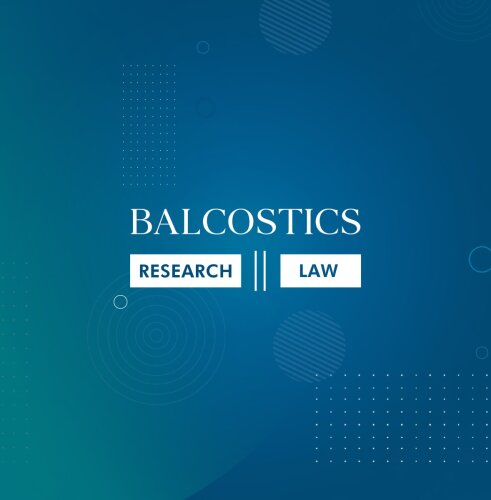Best Truck Accident Lawyers in Jamaica
Share your needs with us, get contacted by law firms.
Free. Takes 2 min.
Or refine your search by selecting a city:
List of the best lawyers in Jamaica
About Truck Accident Law in Jamaica
Truck accident law in Jamaica encompasses the legal principles pertaining to road traffic accidents involving heavy vehicles such as trucks and commercial freight hauliers. Given their size and weight, trucks can cause significant damage in accidents, often leading to severe injuries or fatalities. Legal proceedings may involve multiple parties, including drivers, truck owners, insurers, and even government entities overseeing road safety. Understanding these aspects of the law is crucial for determining liability, claiming compensation, and ensuring compliance with traffic regulations.
Why You May Need a Lawyer
There are several common scenarios where someone involved in a truck accident may require legal assistance:
Severe Injuries or Fatalities: Truck accidents can lead to serious injuries or death. Legal representation can help in pursuing claims for medical expenses, lost wages, or compensation for grief and suffering.
Disputes Over Liability: Determining who is at fault is complex, often involving multiple parties. A lawyer can help navigate these disputes and establish accountability.
Insurance Claims: Insurance companies may attempt to minimize payouts. A lawyer can negotiate on behalf of the victim to ensure fair compensation.
Compliance with Legal Requirements: In cases where a truck driver or company may have violated safety regulations, legal guidance is crucial for building a strong case.
Financial Implications: Accidents can lead to financial hardship. Legal counsel can assist in pursuing adequate compensation to address economic losses.
Local Laws Overview
In Jamaica, several key aspects of local laws are pertinent to truck accidents:
Road Traffic Act: This acts as the primary legislation governing road use, including stipulations for vehicle maintenance, loading limits, and driver conduct.
Safety Regulations: Specific regulations apply to commercial vehicles, including periodic inspections and vehicle weight limits aimed at ensuring road safety.
Insurance Requirements: All vehicles must carry valid insurance. In accidents, claims are usually made through the respective insurance companies, where liability is a significant factor.
Statute of Limitations: Victims have a limited time period to file a claim following an accident, usually two years from the date of the incident.
Frequently Asked Questions
What should I do immediately after a truck accident?
Ensure safety first, check for injuries, call emergency services, and document the scene with photos and witness statements if possible.
How do I determine liability in a truck accident?
Liability is determined based on evidence such as police reports, witness statements, and sometimes accident reconstruction analyses.
Can I claim for both physical and emotional damages?
Yes, you can claim compensation for both physical injuries and emotional distress caused by the accident.
Is there a time limit to file a truck accident claim?
In Jamaica, the statute of limitations for filing a personal injury claim is typically two years from the date of the accident.
How is compensation calculated in truck accident cases?
Compensation is calculated based on factors such as medical expenses, lost income, rehabilitation costs, and pain and suffering.
Can I settle a truck accident claim without a lawyer?
While possible, it's not advisable since insurers may offer lower settlements. A lawyer can ensure your rights are fully represented.
What if the truck driver was uninsured?
If the driver was uninsured, you might still pursue a claim through your own insurance company under uninsured motorist coverage.
Do truck accident cases go to court?
Many are settled out of court, but if a fair settlement isn't reached, the case may proceed to trial.
What kind of evidence is needed for a truck accident claim?
Essential evidence includes police reports, witness statements, medical records, and sometimes expert testimony.
How long does it take to resolve a truck accident claim?
Resolution time varies depending on the case complexity, cooperation between parties, and whether it goes to trial.
Additional Resources
For additional information and assistance regarding truck accidents in Jamaica, you may find the following resources helpful:
National Works Agency (NWA): Provides information on road regulations and safety initiatives.
Insurance Association of Jamaica (IAJ): Offers insights into insurance processes related to vehicle accidents.
Jamaica Constabulary Force Traffic Department: Handles traffic-related incidents and can provide official accident reports.
Consumer Affairs Commission: Assists with disputes or issues related to insurance claims and consumer rights.
Next Steps
If you are involved in a truck accident and need legal assistance, consider the following steps:
Document the Accident: Gather all necessary information including photos, witness details, and medical reports.
Consult a Lawyer: Seek legal advice from a qualified attorney specializing in traffic accidents who can guide you through the process and advocate on your behalf.
File Necessary Claims: Ensure all insurance and legal claims are filed within the stipulated time frames to avoid losing your right to compensation.
Stay Informed: Understand your rights and keep abreast of any changes to relevant laws that might impact your case.
Lawzana helps you find the best lawyers and law firms in Jamaica through a curated and pre-screened list of qualified legal professionals. Our platform offers rankings and detailed profiles of attorneys and law firms, allowing you to compare based on practice areas, including Truck Accident, experience, and client feedback.
Each profile includes a description of the firm's areas of practice, client reviews, team members and partners, year of establishment, spoken languages, office locations, contact information, social media presence, and any published articles or resources. Most firms on our platform speak English and are experienced in both local and international legal matters.
Get a quote from top-rated law firms in Jamaica — quickly, securely, and without unnecessary hassle.
Disclaimer:
The information provided on this page is for general informational purposes only and does not constitute legal advice. While we strive to ensure the accuracy and relevance of the content, legal information may change over time, and interpretations of the law can vary. You should always consult with a qualified legal professional for advice specific to your situation.
We disclaim all liability for actions taken or not taken based on the content of this page. If you believe any information is incorrect or outdated, please contact us, and we will review and update it where appropriate.
Browse truck accident law firms by city in Jamaica
Refine your search by selecting a city.

















